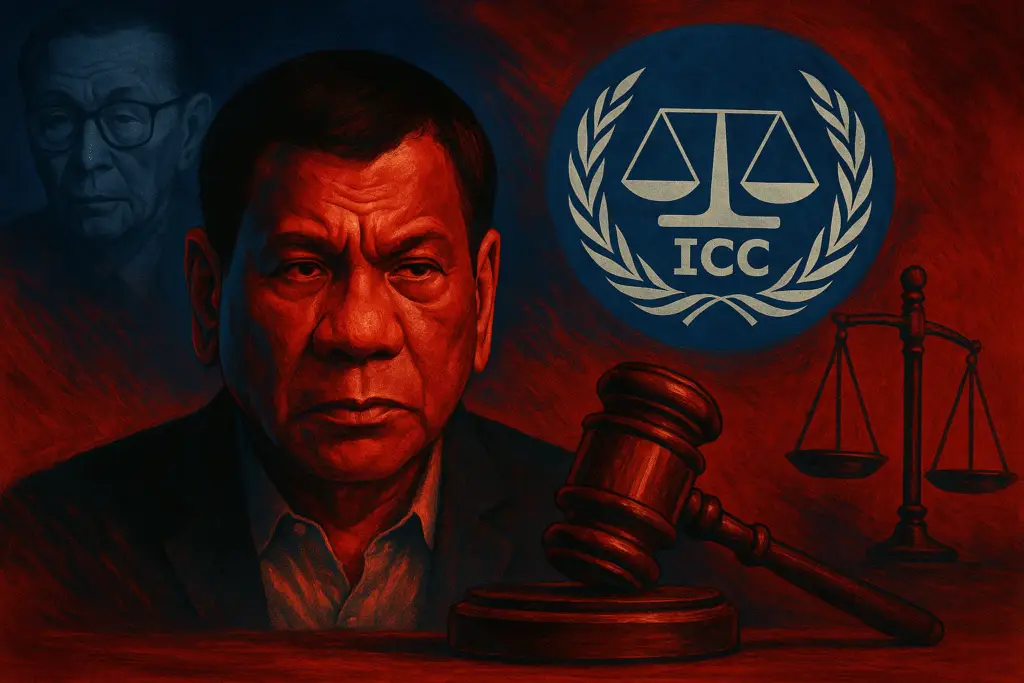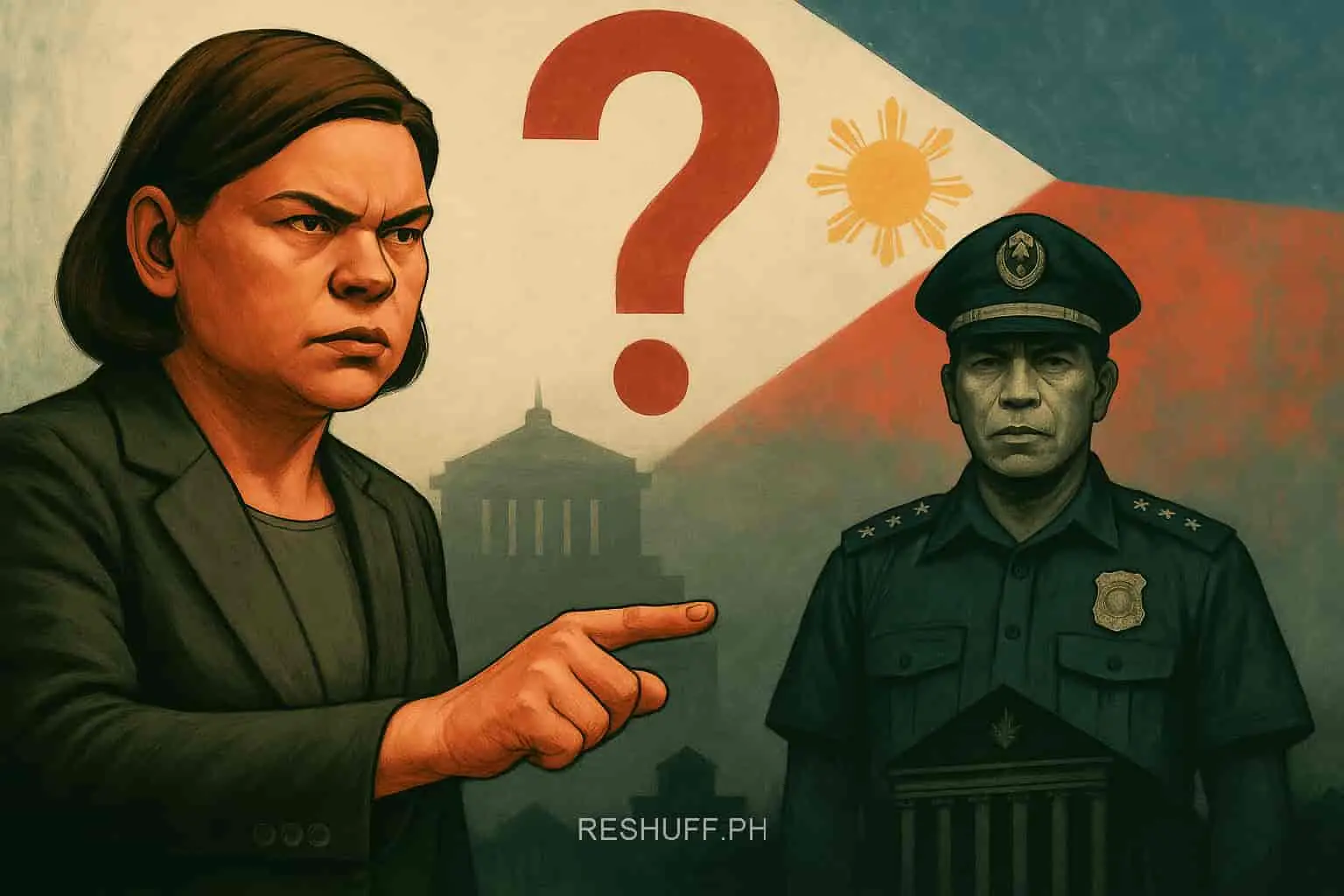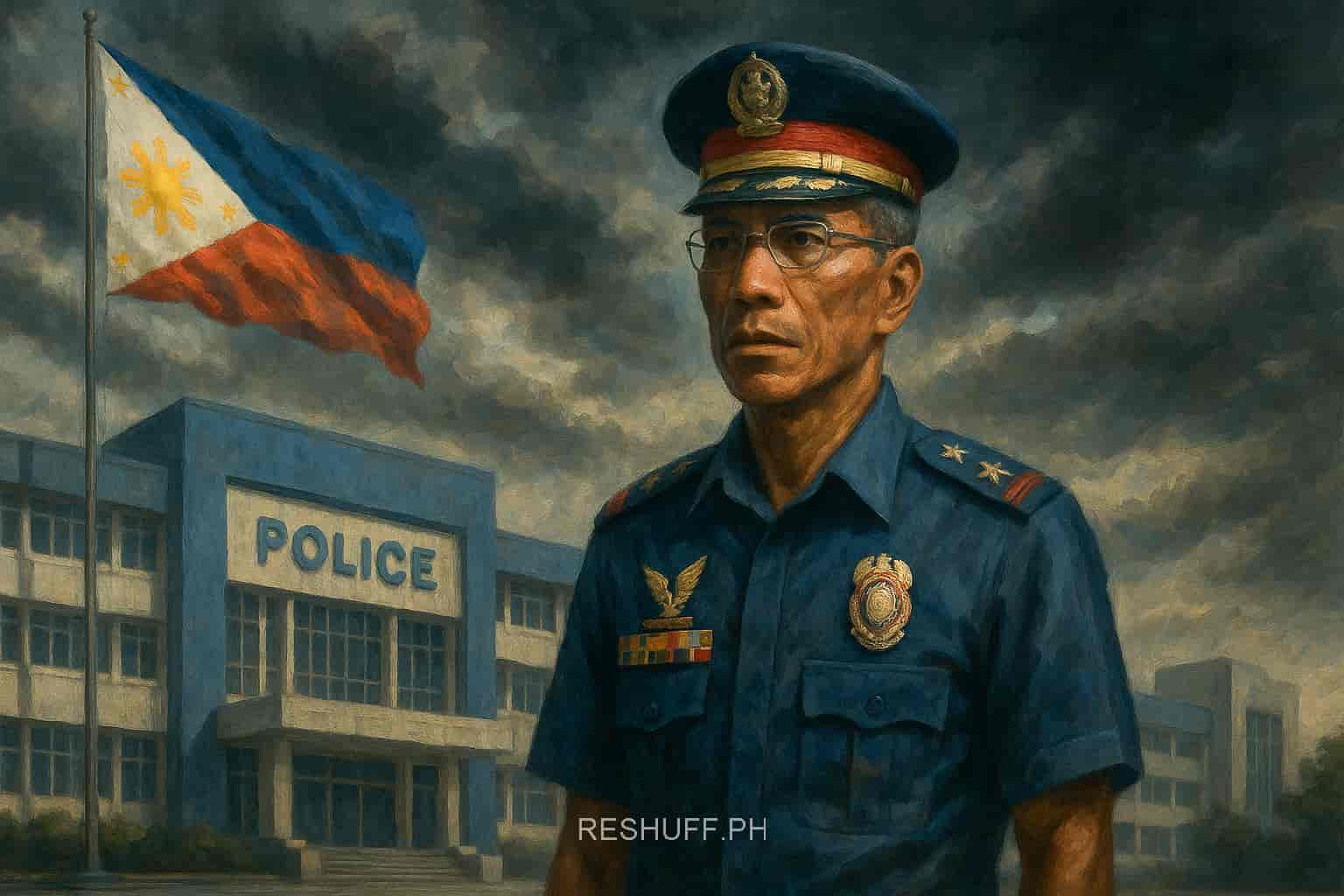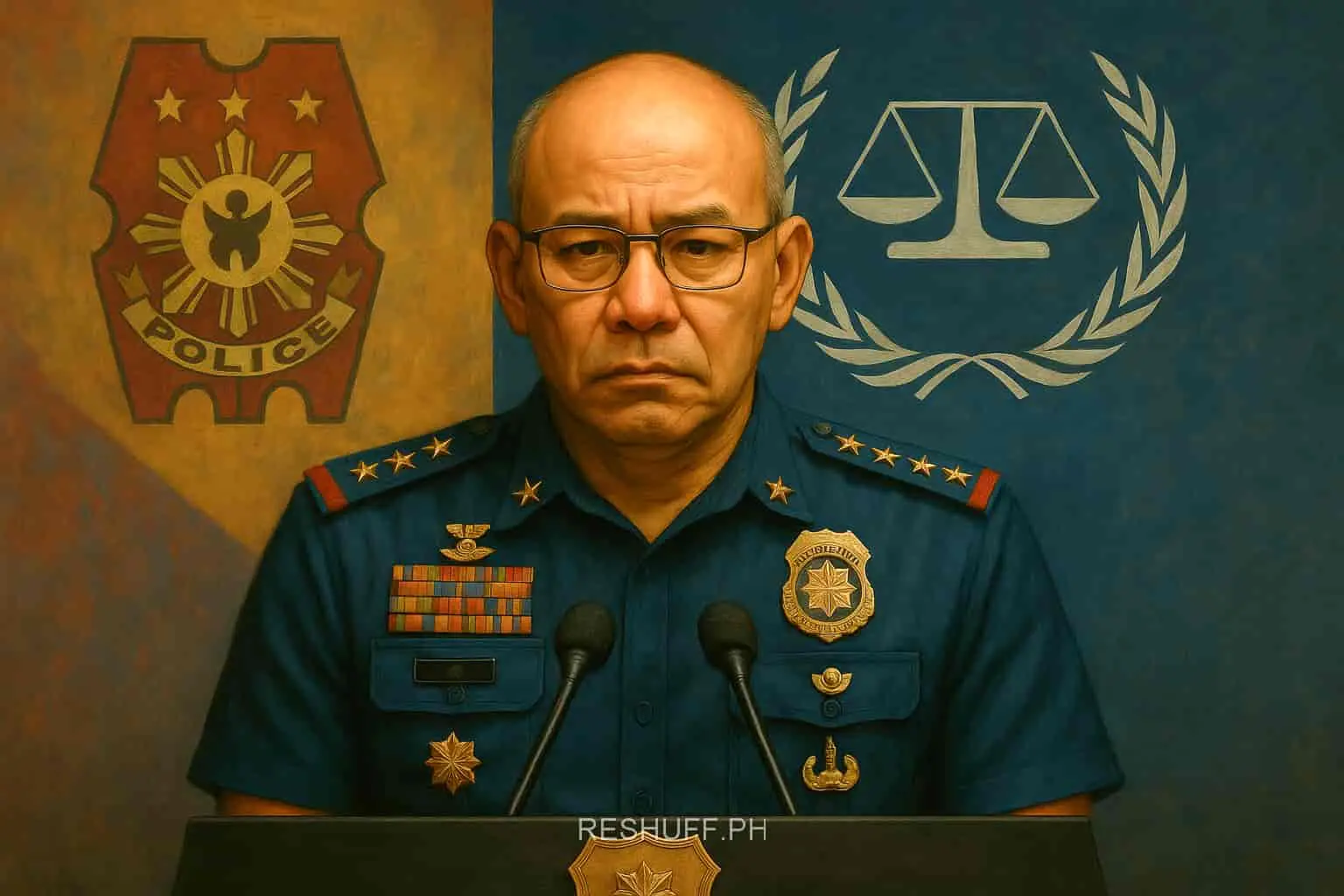The clash over former President Rodrigo Duterte’s arrest erupted into a war of words Tuesday as Chief Presidential Legal Counsel Juan Ponce Enrile fired back at claims that Duterte was “kidnapped” on his way to face international justice. In a scathing Facebook post that shattered the diplomatic silence surrounding the case, Enrile defended the Philippine government’s compliance with the International Criminal Court (ICC) warrant that sent Duterte to The Hague last month.
“With due respect to all, I beg to disagree,” Enrile declared, his words cutting through the fog of conspiracy theories that have swirled since Duterte’s dramatic March 11 arrest. The veteran statesman took direct aim at “learned academicians and legal scholars” supporting Duterte who claim the former president’s transfer to the ICC violated Philippine sovereignty.
Enrile’s defense rests on bedrock principles of Philippine governance. “We are a country governed by rule of law and a regime of justice,” he stated firmly. “We adopt the generally accepted principles of international law as part of the law of our land. We adhere to the policy of cooperation and amity with all nations.”
The 101-year-old legal counsel didn’t mince words when defending President Ferdinand Marcos Jr., who has faced accusations of betraying his predecessor. “How can anyone validly claim that BBM kidnapped FPRRD and delivered him to the ICC for trial in the Netherlands?” Enrile asked, using the initials that have become shorthand for the two leaders.
“I Will Not Burn the Whole House”
Enrile’s most striking statement came in the form of a kitchen metaphor that instantly caught fire on social media. “My position is very simple: I will not burn the whole house to save the ass of a cook whose error, negligence, or hubris caused a fire in the kitchen,” he declared, making his stance unmistakably clear.
This colorful image resonated with many Filipinos who have followed the former president’s legal troubles. Human rights advocate Maria Santos told reporters: “Enrile’s statement captures what many feel – that one man’s actions shouldn’t jeopardize our standing in the international community.”
Enrile emphasized that Marcos took an oath to “faithfully and conscientiously” fulfill his duties as head of state, suggesting the president had no choice but to comply with international obligations. “It is a basic—though nearly an unwritten—principle of statecraft that the defense of the state is a prime duty of every government!” Enrile added.
From Manila to The Hague: A Historic Transfer
The former president’s journey to The Hague began with his arrest in Manila on March 11, 2025. According to official statements, Philippine authorities acted on an ICC-issued warrant that had been communicated through Interpol. President Marcos confirmed that an aircraft carrying Duterte departed Manila’s Ninoy Aquino International Airport at 11:03 p.m. that same day.
The ICC formally announced Duterte’s surrender to their custody on March 12, noting he would face charges including “crimes against humanity of murder, torture and rape.” Pre-Trial Chamber I found “reasonable grounds to believe that Mr. Duterte is individually responsible as an indirect co-perpetrator for the crime against humanity of murder, allegedly committed in the Philippines.”
Legal experts note that while the Philippines withdrew from the ICC effective March 17, 2019, the court retains jurisdiction over crimes allegedly committed while the country was a State Party to the Rome Statute. The Philippines had been a member since November 1, 2011.
First Appearance via Video Link
Duterte made his first appearance before the ICC during a pretrial hearing on March 14, though he was unable to attend physically and participated via video link instead. Court officials confirmed the hearing would establish Duterte’s identity and ensure he understood the proceedings and his rights under the Rome Statute.
“This momentous event sends a message to human rights abusers everywhere that one day they could be held to account,” said Bryony Lau, deputy Asia director at Human Rights Watch, describing the arrest as “a long-overdue victory against impunity.”
The Shadow of the Drug War
Duterte’s legal troubles stem from his administration’s controversial “war on drugs” that began when he took office in 2016. According to official government data, the campaign claimed at least 6,000 lives. However, human rights organizations estimate the actual death toll to be much higher—between 12,000 and 30,000 from 2016 to 2019.
The ICC investigation focuses on allegations that these killings constituted systematic crimes against humanity rather than legitimate law enforcement operations. Many victims were impoverished people from urban areas, and human rights groups report that children were among those killed or harmed during the anti-drug campaign.
The case represents the first time a former Philippine president has been transferred to the ICC to face trial, marking a watershed moment for international justice in Southeast Asia and a potential turning point in how former heads of state are held accountable for alleged crimes committed during their tenure.
As the legal process unfolds at The Hague, the debate within the Philippines continues to simmer, with Enrile’s forceful defense of the government’s actions adding fuel to an already heated national conversation about sovereignty, justice, and accountability.
Key Facts Table
Topic | Details |
|---|---|
Event | Duterte’s arrest and transfer to ICC in The Hague on March 11. |
Enrile’s Stance | Denies kidnapping claims, defends rule of law and international cooperation. |
Drug War Death Toll | Official: 6,000; Human rights estimates: 12,000–30,000 (2016–2019). |
ICC Trial | Duterte faces charges for crimes against humanity; first appearance March 14. |
Legal Basis | Republic Act No. 9861 and constitutional separation of powers. |
Marcos Jr.’s Role | Enrile defends Marcos, citing his presidential oath and duties. |





2 Responses